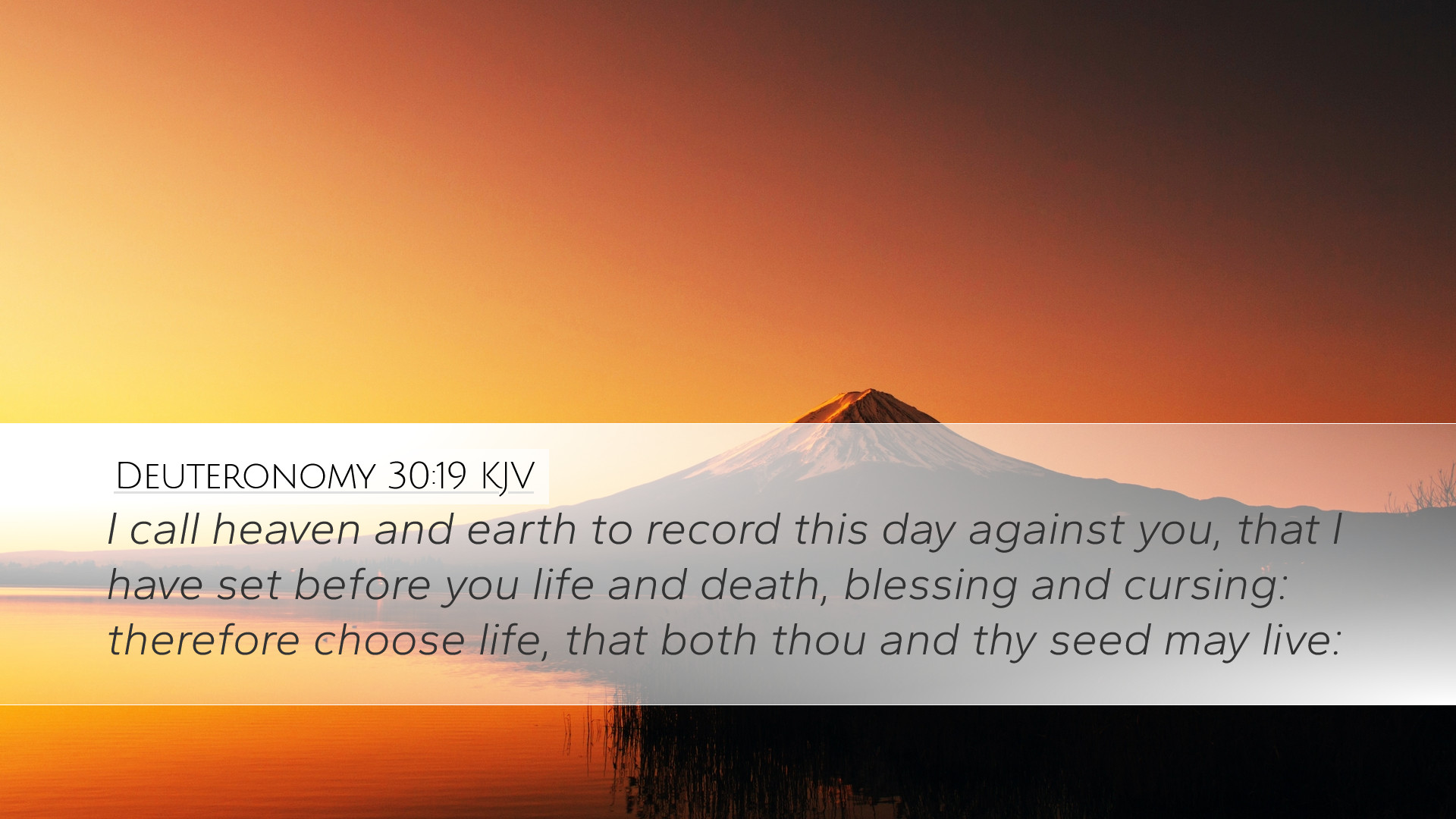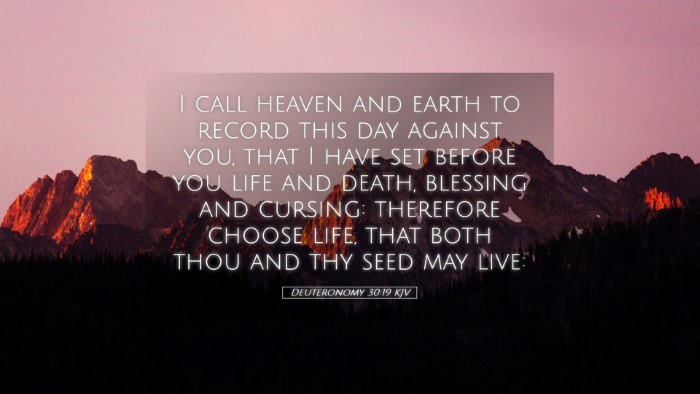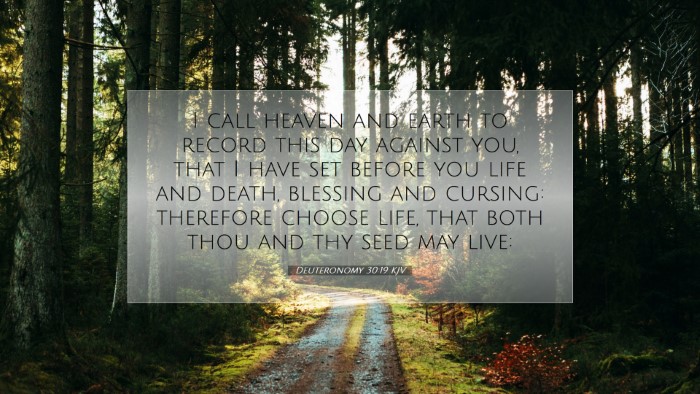Deuteronomy 30:19 - A Call to Choice and Consequence
Verse: "I call heaven and earth to witness against you today, that I have set before you life and death, blessing and curse. Therefore choose life, that you and your offspring may live."
Introduction
The verse of Deuteronomy 30:19 encapsulates a profound moment in the Mosaic covenant where the sovereign Lord lays out a pivotal choice before the Israelites. Using strong imagery, God invokes heaven and earth to testify to the gravity of the decision facing His people. This choice reflects not just personal implications but has generational consequences. The ensuing commentary draws on the insights of esteemed public domain commentators to expound the theological, practical, and existential significance of this verse.
Contextual Background
Understanding Deuteronomy 30:19 requires an appreciation of its historical and covenantal context. This chapter concludes the narrative of the Israelites' journey toward the Promised Land, a place filled with God's blessings but also potential pitfalls. The call to choose is rooted firmly in prior stipulations of the Law and the covenant relationship God has established with Israel.
Theological Implications of Choice
- The Sovereignty of God: Commentators like Matthew Henry emphasize that God's solicitation for choice does not undermine His sovereignty. While God provides options, He also governs the outcomes. This reveals a divine framework where human free will operates under God’s overall plan.
- Human Responsibility: Albert Barnes highlights the weight of responsibility placed upon individuals. The act of choosing signifies moral agency, suggesting that spiritual life and prosperity hinge upon the decisions one makes according to God’s commands.
- Consequences: Adam Clarke points out that the outcomes of choices are not trivial; blessing and cursing are intrinsic to the covenant framework. There is a direct correlation between obedience to God’s laws and the resultant blessings or curses that follow.
The Role of Witnesses
The invocation of "heaven and earth" serves a dual purpose as noted by several scholars. Matthew Henry describes this as a cosmic witnessing to emphasize the gravity of the covenant. It indicates that the principles of divine justice are as immutable as the very foundations of creation. Thus, any choice that leads to disobedience engenders not just earthly consequences but invites cosmic accountability.
Choosing Life
The imperative to "choose life" is critical to understanding the heart of this scripture. Albert Barnes explains that this choice encapsulates a commitment to the covenant’s stipulations, which fundamentally leads to a living relationship with God. In the New Testament context, this can be seen reflected in Christ’s teachings on eternal life and abundant living.
Practical Considerations: For pastors and leaders, the call to choose life is particularly poignant when applied to counseling and teaching. This choice should be framed as accessible and life-giving, reinforcing the narrative that God desires His people's flourishing.
Generational Impact
Deuteronomy 30:19 also references the impact of choices on future generations. Adam Clarke elaborates that the decisions made by one generation can establish patterns that affect descendants. The idea of choosing life implies not merely personal benefit but a legacy that endures. This connects deeply with pastoral care, where the influences of choices are discussed not only in personal terms but also in community and familial contexts.
Contemporary Application
In today's context, the message of Deuteronomy 30:19 remains vibrantly relevant. Matthew Henry suggests that modern believers must actively choose between spiritual vitality and spiritual decline. In a world rife with moral ambiguity, the clarity of God's call to choose is both comforting and challenging.
- Encouragement for Discipleship: Churches are urged to cultivate environments that facilitate decision-making rooted in faith, echoing the sentiments of Albert Barnes concerning personal commitment to God’s Word.
- Mentorship and Guidance: Leaders are called to guide others in making wise choices based on scriptural truths, ensuring the legacy of faith transcends generations.
Conclusion
In summary, Deuteronomy 30:19 serves as a timeless reminder of the significance of human choice within the divine framework. Enabled by the sovereignty of God, individuals are beckoned to embrace life through obedience to His commands, with awareness of the profound implications their choices carry for themselves and subsequent generations. As the faith community reflects on this scripture, the encouragement to choose wisely and live abundantly continues to resonate, challenging believers to align their lives with God's transformative purpose.


